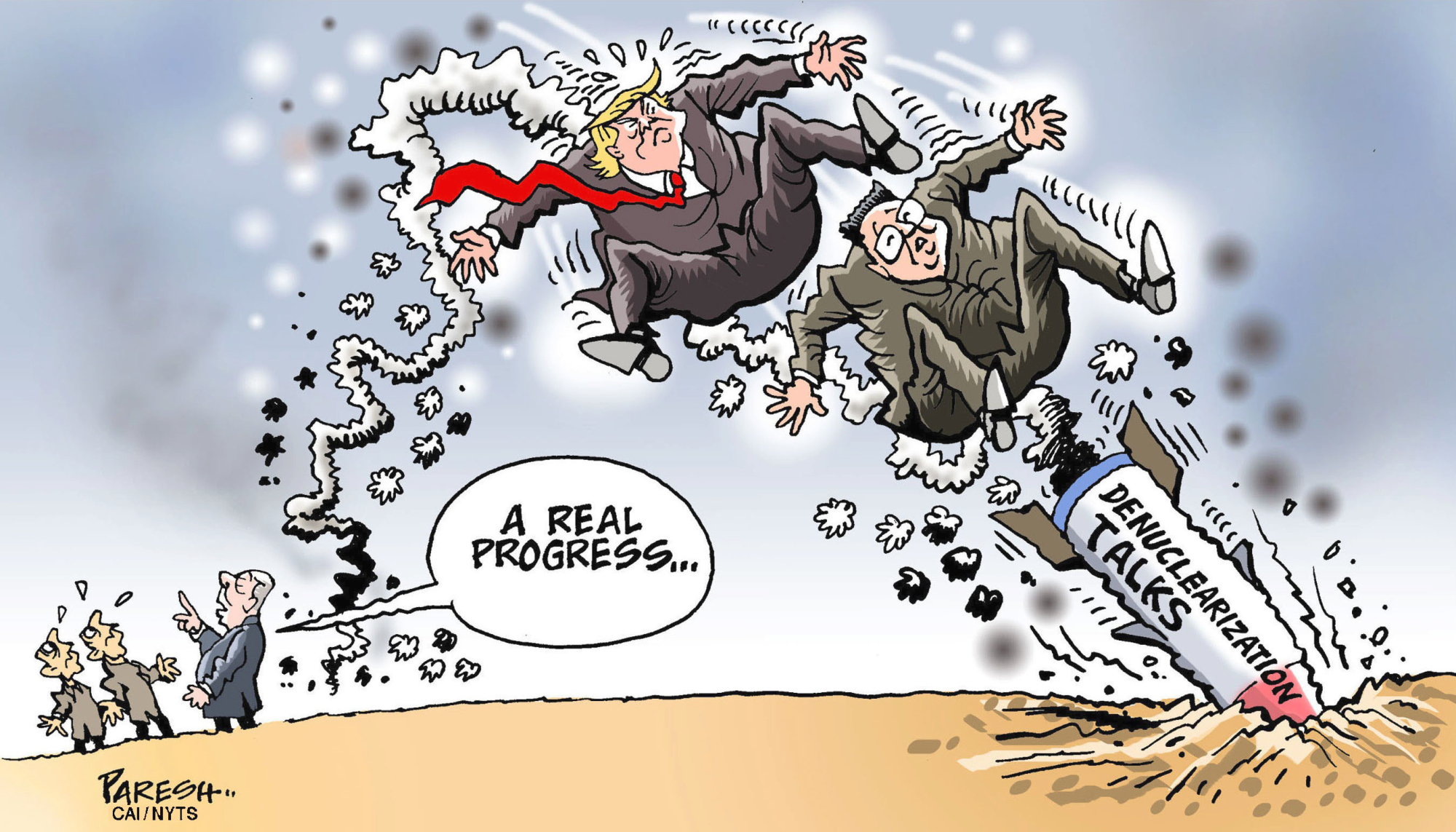The cameras are gone, the lights have dimmed, the scribes have filed their reports and returned home and Hanoi has faded from host of a potentially life-and-death summit to being merely the capital of a booming Southeast Asian country. Attention will now turn fully to the simmering crisis in Kashmir.
The first thing to note is the dual symbolism of the venue. Reflecting the changed geopolitical dynamics, the summit process did not migrate to Europe but stayed in Asia. Most U.S. commentators noted how Vietnam comes with the symbolism of a country, once at war with the United States, now enjoying the fruits of prosperity. They encouraged North Korean leader Kim Jong Un to improve relations with the United States and follow Vietnam's model of economic development. In effect, Kim was told to abandon national and regime aspirations for security for a better lifestyle for his people.
This is historical amnesia. North Vietnam first achieved its national aspiration of defeating the U.S. and conquering the South, and only then gained lifestyle improvements. Economic development, conflict with China and healthy relations with the U.S. followed. The correct reading of history and its lessons is as pertinent for the U.S. as for North Korea.


















With your current subscription plan you can comment on stories. However, before writing your first comment, please create a display name in the Profile section of your subscriber account page.